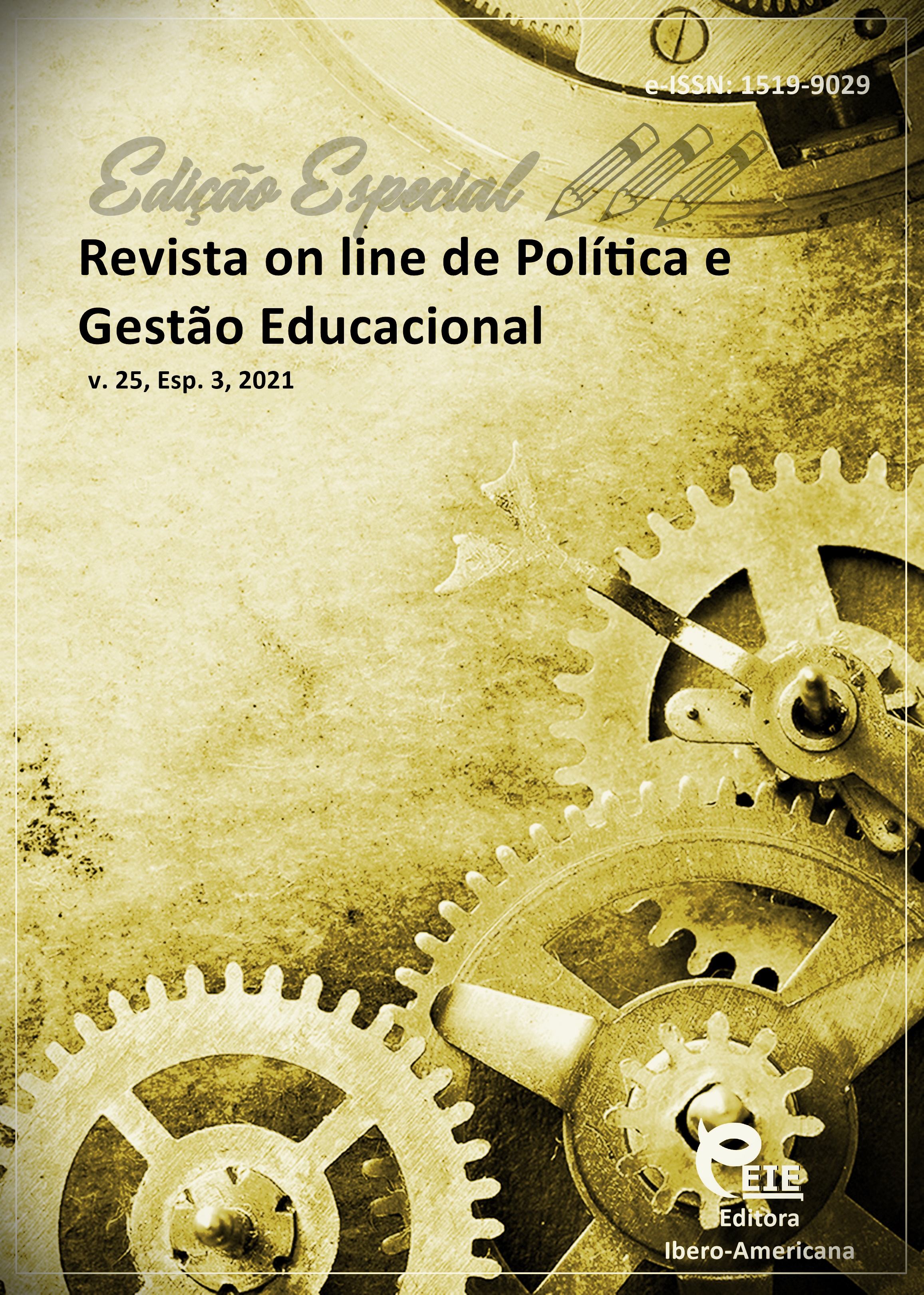Innovative technologies in modern higher education: European experience and Ukrainian context
DOI:
https://doi.org/10.22633/rpge.v25iesp.3.15586Keywords:
Educational process, Higher educational institutions, Innovation, Pedagogical support, ModernizationAbstract
This study examines the issues of implementing innovative technological solutions in modern higher education, considering the accumulated European experience and in the modern Ukrainian context. The relevance of this study is conditioned by the wide spread of innovative technological solutions in the European higher education system in general and Ukraine in particular, as well as the need for a deep and comprehensive study of this process considering the prospects for the technological development of modern higher education and accumulated European experience in this field. The purpose of this study is to determine the fundamental factors that influence the development of technological innovations in the modern higher education system. The main results of this study should be the definition of the essence of innovative technologies in the modern system of higher education, the types and categories of modern innovations, as well as the main trends in academic research in this field.
Downloads
References
BENSON, R., BRACK, C. Online learning and assessment in higher education. Colchester: Chandos Publishing, 2010.
BORTSOV, YU.S.; STARYGINA, A.M. The strategy of innovative development of higher education in Russian Federation: opportunities and constraints, 2015. Available in: https://cyberleninka.ru/article/n/strategiya-innovatsionnogo-razvitiya-vysshego-obrazovaniya-v-rossii-vozmozhnosti-i-ogranicheniya.
CHEN, B.; CHANG, Y.-H.; OUYANG, F.; ZHOU, W. Fostering student engagement in online discussion through social learning analytics. The Internet and Higher Education, n. 37, pp. 21-30, 2018.
CROOK, C.; SCHOFIELD, L. The video lecture. The Internet and Higher Education, n. 34, pp. 56-64, 2017.
GLAVAS, C.; SCHUSTER, L. Design principles for electronic work integrated learning (eWIL). The Internet and Higher Education, n. 47, Article number: 100760, 2020.
MAVRI, A.; LOANNOU, A.; LOIZIDES, F. Cross-organisational Communities of Practice: enhancing creativity and epistemic cognition in higher education. The Internet and Higher Education, n. 49, Article number: 100792, 2021.
MILLER, I. Distance learning – a personal history. The Internet and Higher Education, v. 3, n. 1-2, pp. 7-21, 2000.
OOSTHOEK, H. Higher education and new technologies. Oxford: Pergamon Press, 2013.
RAMBE, P.; MLAMBO, S. Using digital storytelling to externalise personal knowledge of research processes: The case of a Knowledge Audio repository. The Internet and Higher Education, n. 22, pp. 11-23, 2014.
ROVAI, A. The Internet and higher education. Colchester: Chandos Publishing, 2009.
SADKOVOY, V.P. Mechanisms of state reforming of higher professional education in Ukraine. Actual Problems of the Humanities and Natural Sciences, v. 7, n. 2, pp. 183-187, 2014.
SONG, Y.; KONG, S.C. RETRACTED: Affordances and constraints of BYOD (Bring Your Own Device) for learning and teaching in higher education: Teachers' perspectives. The Internet and Higher Education, n. 32, pp. 39-46, 2017.
SULIMA, YE.N. Innovative processes in Ukrainian higher pedagogical education. Domestic and Foreign Pedagogy, n. 2(48), pp. 82-91, 2018.
VERNYAKHOVSKAYA, V.N. Promising forms of technology transfer in higher education. Science and Innovation, n. 6(112), pp. 47-50, 2012.
VERNYAKHOVSKAYA, V.N. Higher education as a key component of the national innovation system. Science and Innovation, n. 5(195), pp. 45-49, 2019.
VIGENTINI, L.; LIU, D.Y.T.; ARTHARS, N.; DOLLINGER, M. Evaluating the scaling of a LA tool through the lens of the SHEILA framework: A comparison of two cases from tinkerers to institutional adoption. The Internet and Higher Education, n. 45, Article number: 100728, 2020.
WARTMAN, S. The transformation of academic health centers. London: Academic Press, 2015.
WATTED, A.; BARAK, M. Motivating factors of MOOC completers: Comparing between university-affiliated students and general participants. The Internet and Higher Education, n. 37, pp. 11-20, 2018.
XIE, K.; DI TOSTO, G.; LU, L.; CHO, Y.S. Detecting leadership in peer-moderated online collaborative learning through text mining and social network analysis. The Internet and Higher Education, n. 38, pp. 9-17, 2018.
Published
How to Cite
Issue
Section
License
Copyright (c) 2021 Revista on line de Política e Gestão Educacional

This work is licensed under a Creative Commons Attribution-NonCommercial-ShareAlike 4.0 International License.
Manuscritos aceitos e publicados são de propriedade da Revista on line de Política e Gestão Educacional. É vedada a submissão integral ou parcial do manuscrito a qualquer outro periódico. A responsabilidade do conteúdo dos artigos é exclusiva dos autores. É vedada a tradução para outro idioma sem a autorização escrita do Editor ouvida a Comissão Editorial Científica.











